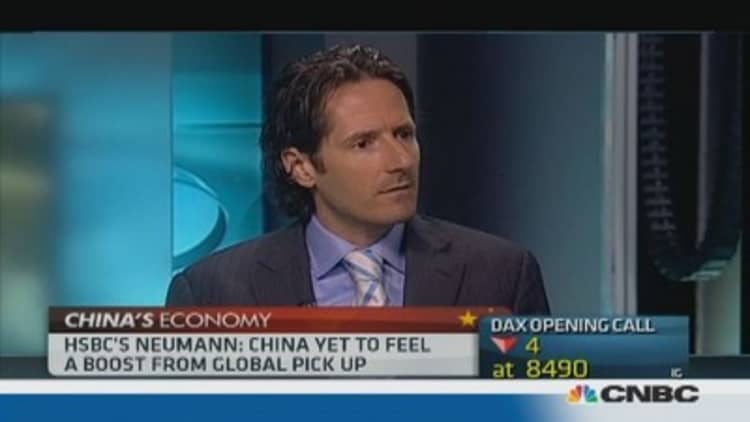Excitement over a free trade zone in Shanghai has reached fever pitch in recent weeks but signs of waning enthusiasm have left some investors wondering – is Shanghai's free trade zone really a game changer?
"Successful innovations will ultimately be rolled out nationwide, but probably only after many years. As such, this is an experiment worth watching but not the game-changer some believe," Mark Williams and Qinwei Wang, economists at Capital Economics wrote in a report.
China's benchmark stock index has risen nearly 6 percent since China's Commerce Ministry approved the project on August 22nd, while stocks linked to the project have soared. Termed concept stocks by some analysts, these firms encompass various sectors including construction, logistics transportation, and financial services.
(Read more: Asia stocks go oneway, China sure to go the other)
Over the past 30 days, distributor Shanghai Waigaoqiao has sky rocketed 243 percent, Shanghai International Port has surged nearly 150 percent and Shanghai Material Trading has risen 90 percent.

On Tuesday, the Commerce Ministry said that the free trade zone would officially be launched on October 1 but concrete details as to what the project will actually look like remain unknown.
(Read more: China Can Reform Without Any Wrist Cutting)
One key factor underpinning skepticism has been the project's proposal to loosen capital controls. According to reports from state-owned news agency Xinhua, firms operating in the free trade zone would have access to full yuan convertibility and enjoy zero restrictions on bank interest rates.
"[Officials] can't just suddenly liberalize one single part of China and expect it to be under control because there's going to be a lot of leakages that come through. I can't believe that we'd suddenly see a free movement of capital, there would be so much arbitrage and inflows and the appreciation pressure would build substantially," Craig Chan, head of FX strategy, Asia ex-Japan at Nomura told CNBC.
(Read more: Yuan now one of world's most tradable currencies)
Furthermore, if these reforms are indeed embraced, that could spell more regulation since transactions with the rest of the mainland would have to be governed.
Analysts ultimately agree that the liberalization process will likely be spread out over a period of years as officials test out new economic models.
"We see the free trade zone as a means to achieving the government's long-stated intentions of gradually opening up the service sector and the capital account without in itself accelerating either process," Capital Economics concluded.
— By CNBC.com's Nyshka Chandran. Follow her on Twitter @NyshkaCNBC

